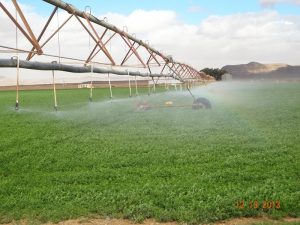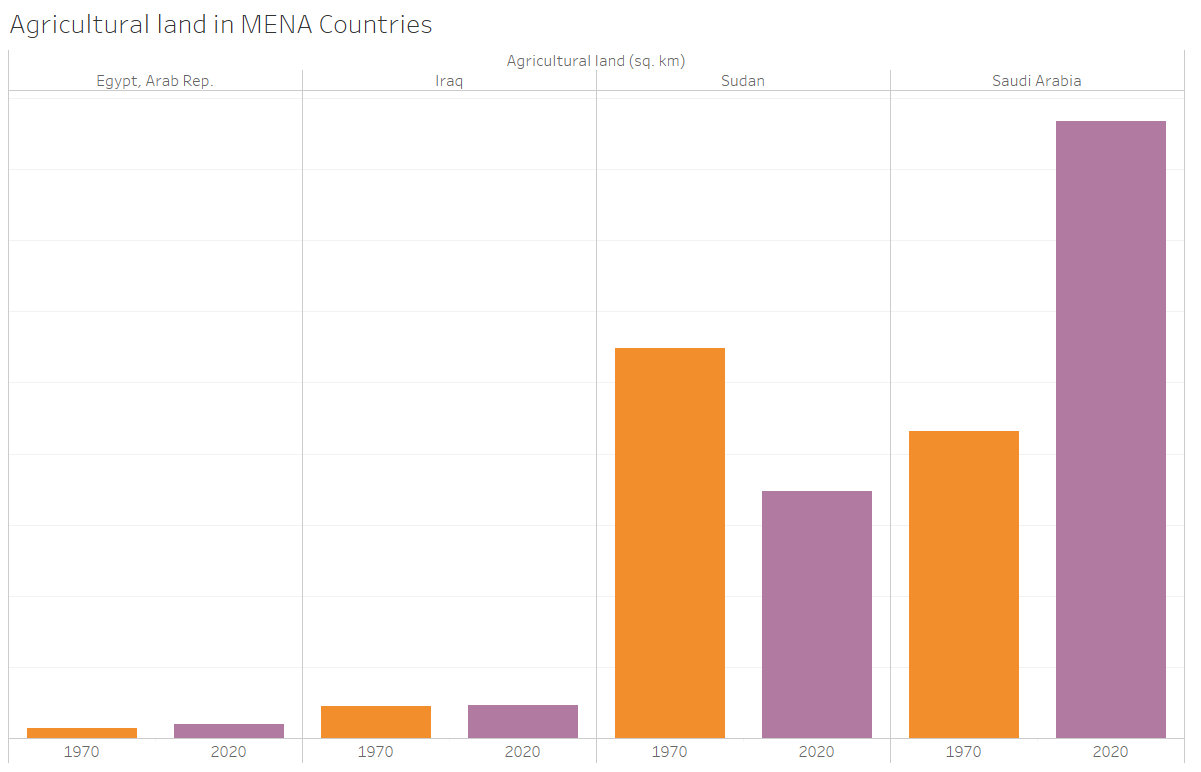
Since the oil crisis in 1973, Saudi Arabia discovered that having petroleum does not maintain its food security. when this country decided to cut imports of petroleum to certain countries, other countries cut the supply of wheat and other food products to Saudi Arabia which has added risk on its food security. Since then, this dry country decided to invest heavily in agriculture so that it can reach self satisfaction and be independent from other countries.
Using the world data indicators, this interesting visual has shown:

The above visualization shows that Saudi Arabia, the dry country, has doubled its agricultural land between 1970 and 2020 and now has agricultural land more than Egypt and Sudan ( where Nile passes through) and more than Iraq (the Mesopotamia) where agriculture in the whole world started.
So, from where Saudi Arabia is getting water? Saudi Arabia pumped water from deep wells underground that took thousands of years to form, and after few decades of extensive use, the water in these wells started to deplete.
Professor Isam Bashour, chairman of the agriculture department at AUB ( 2000-2022) was director of a project done by AUB in Wadi el Dawaseer, Saudi Arabia, claimed that using the underground water of the desert is not sustainable as this water is non-renewable.
The potential solution for this problem is to use this water resource sustainably. that is, achieving food security by sustainable agriculture. the solution has two important steps:
-the first step : installing Agri-Vlotaics system ( solar panels above the agricultural land that provide shade at most of the times which will decrease the transpiration from plants and water evaporation from soil.
-the second step: planting drought tolerant varieties that need less amount of water without affecting the yield ( this is achieved by plant breeding and biotechnology tools)
#SDG#2 #Sustainable_Agriculture #Food_Security
0 Comments